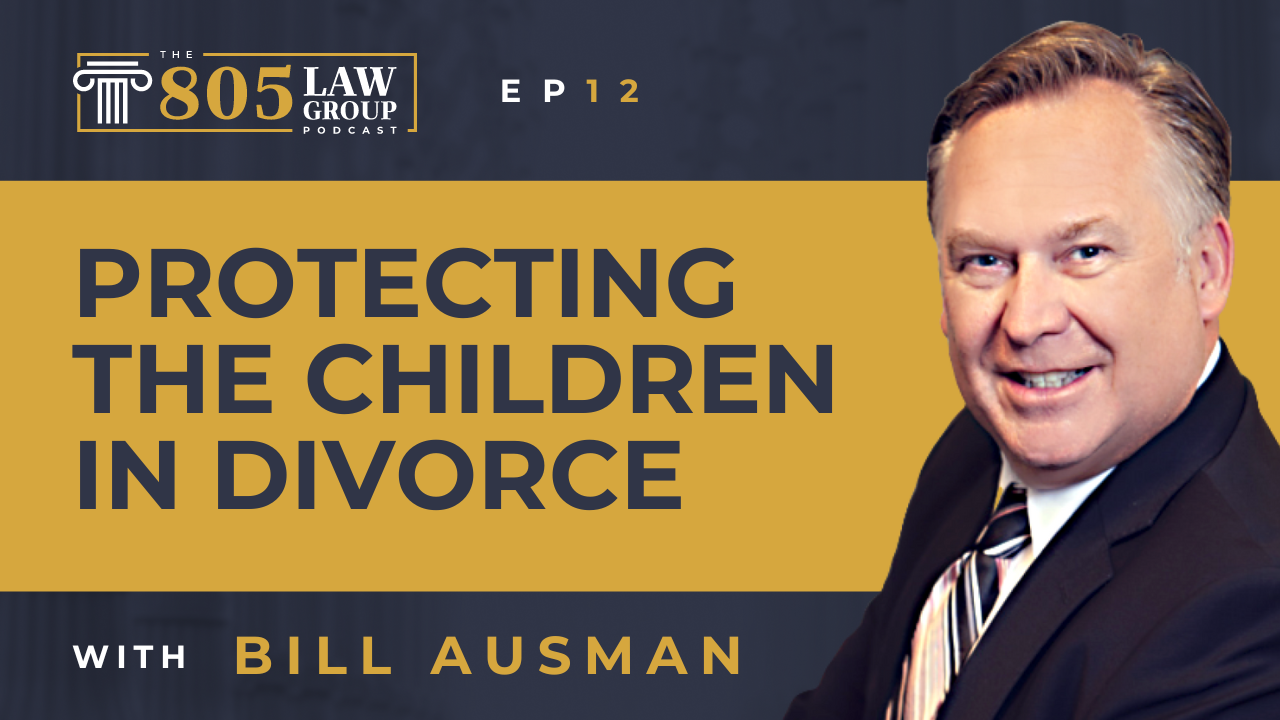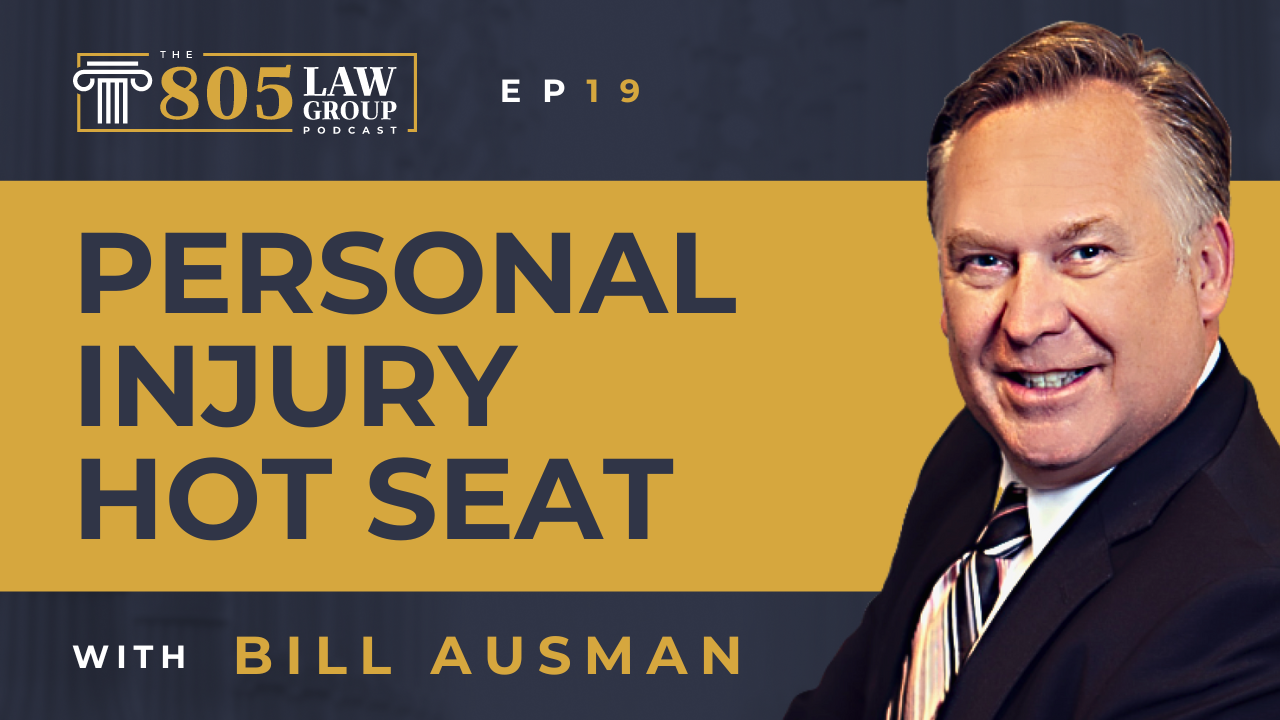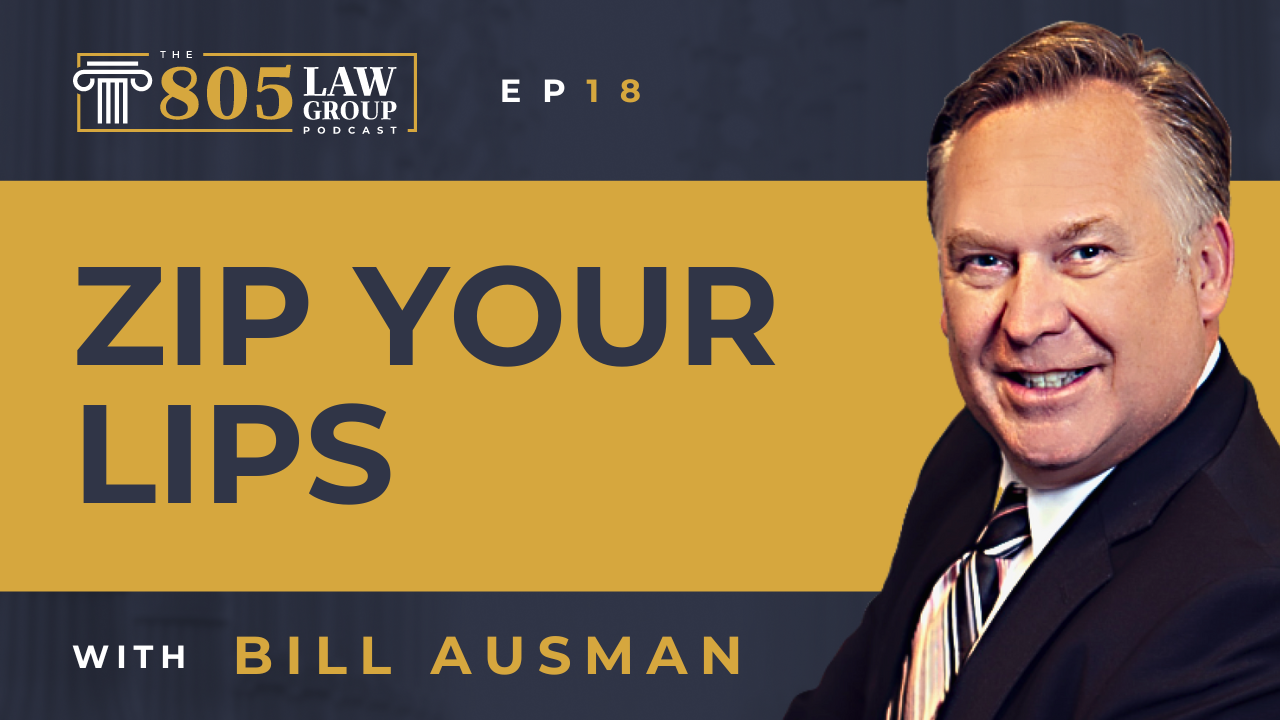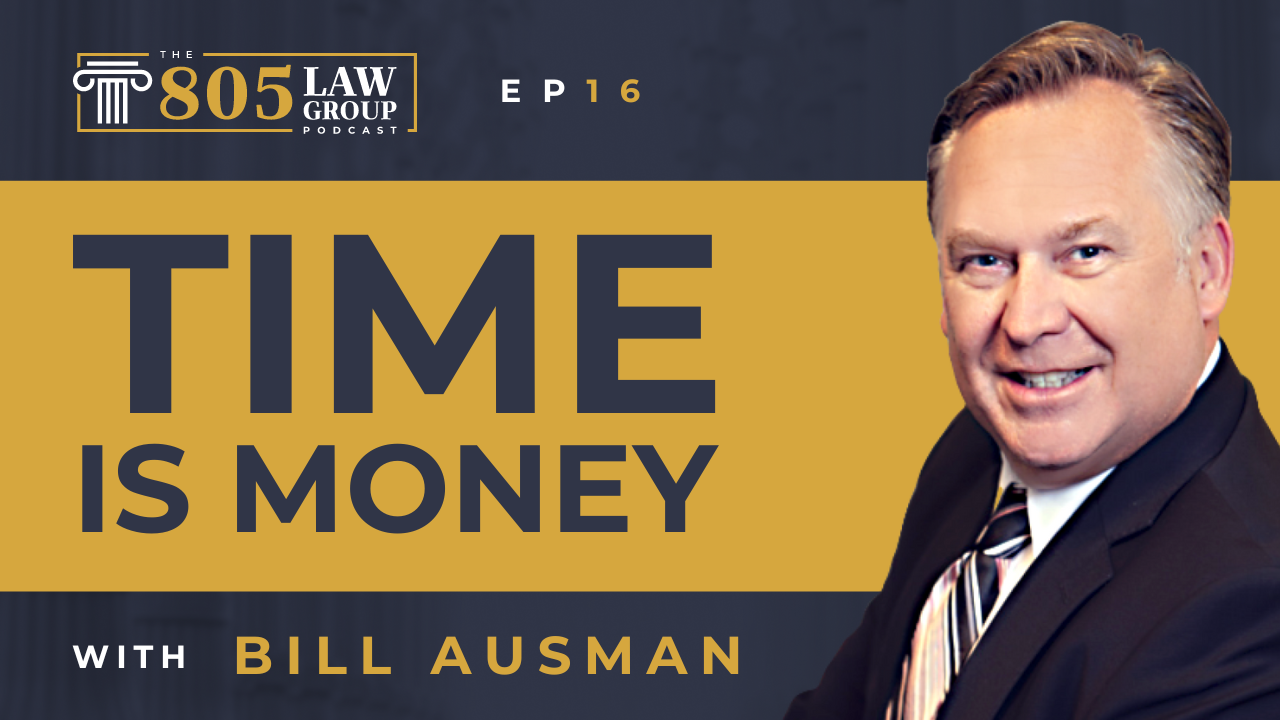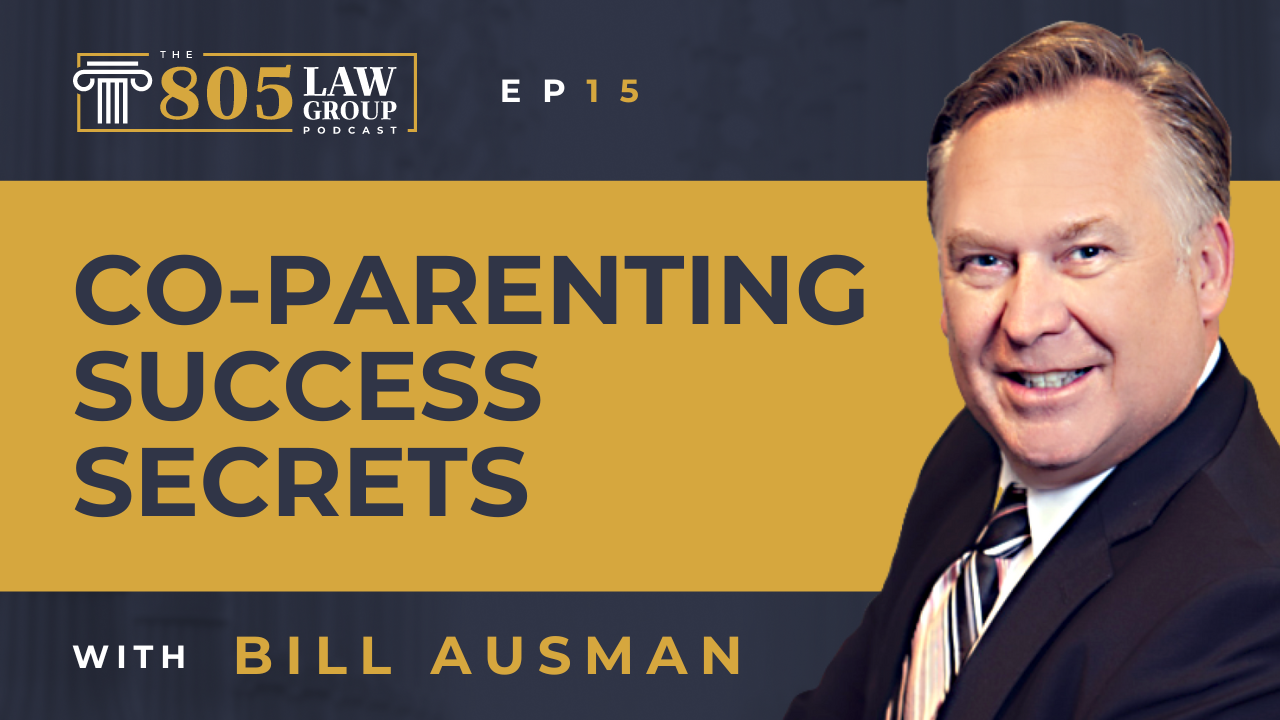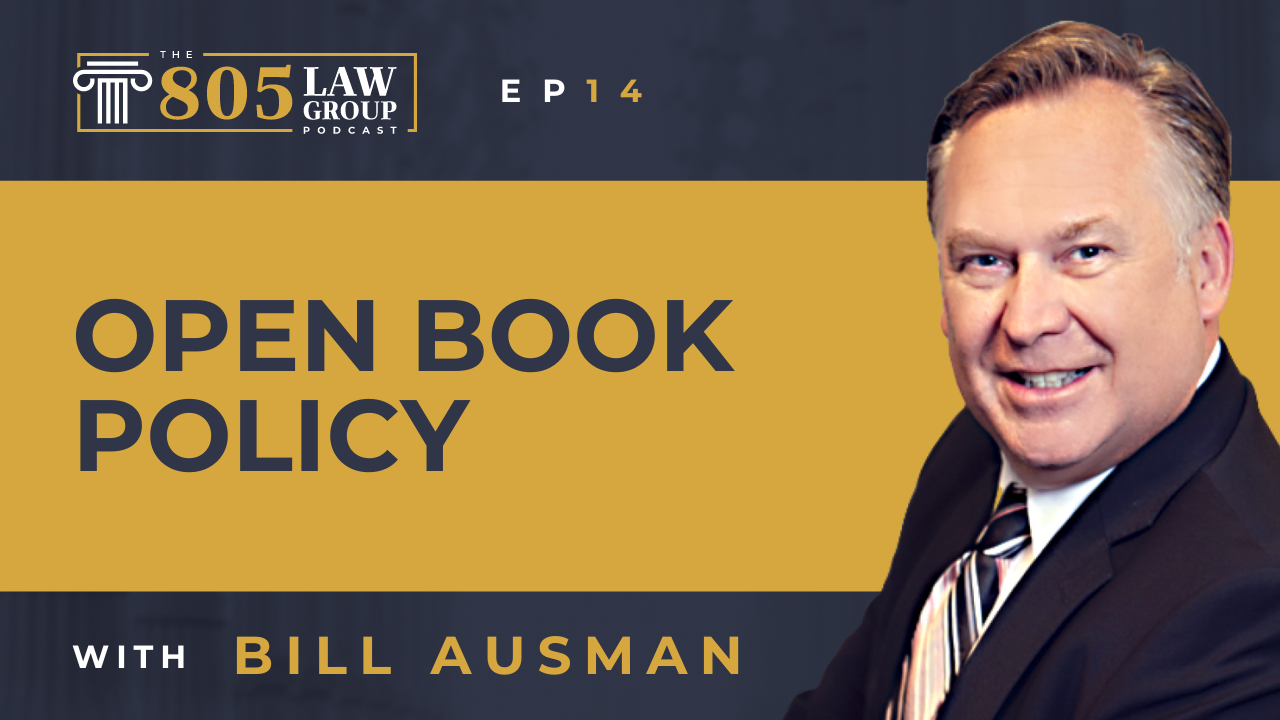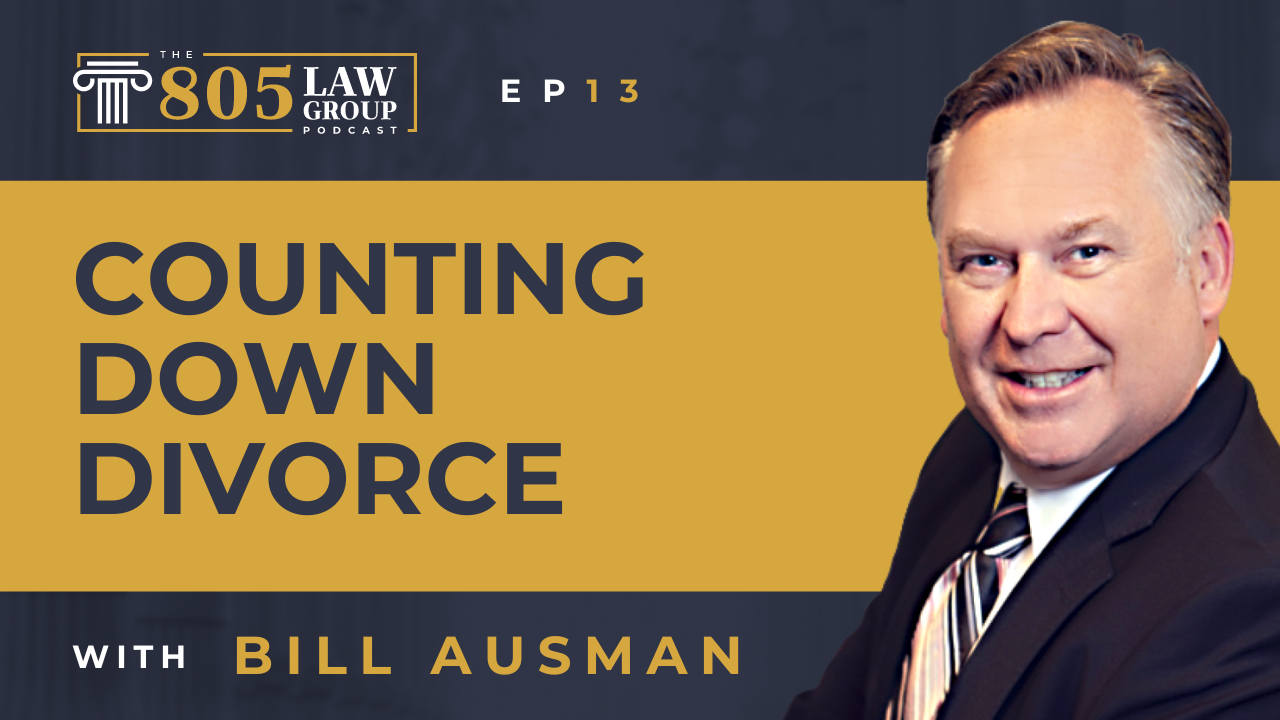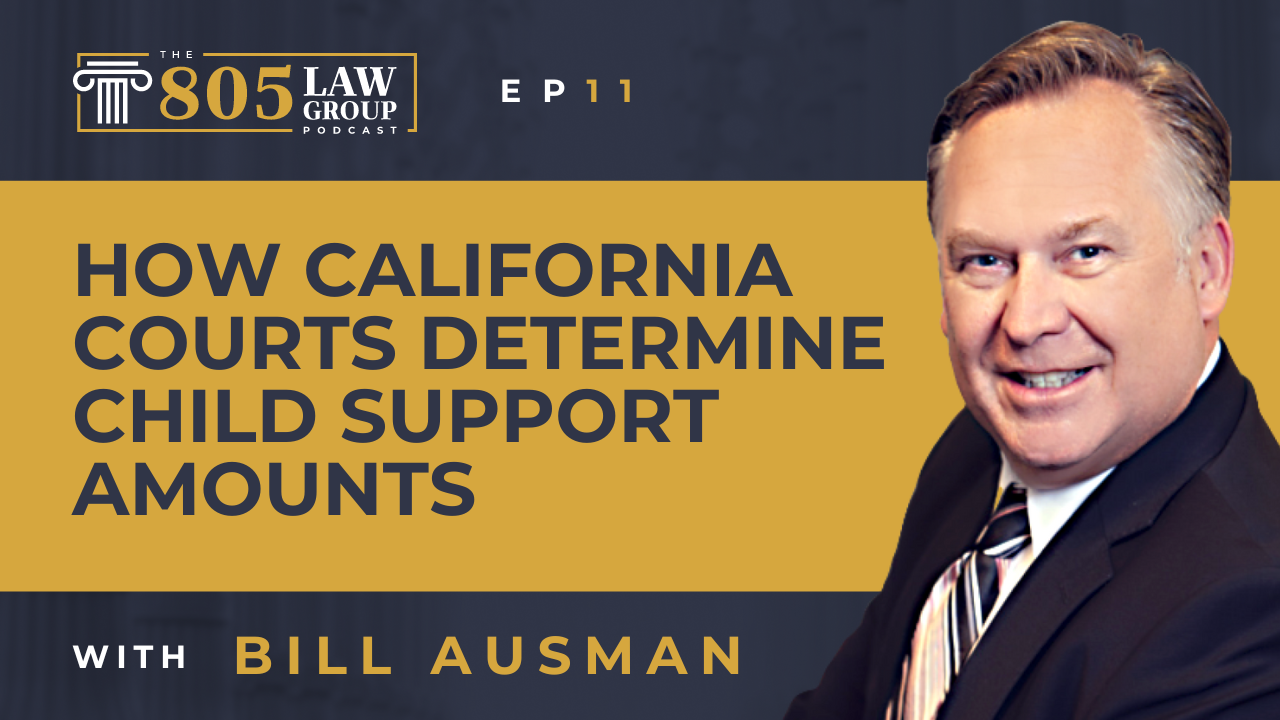Dean Mignola: [00:00:00] Okay. Now, I would imagine that there are differences in approaching this discussion, considering whether you’re talking to really younger children versus teenagers, for example. When that’s the case, what strategies would you say are more effective for each group?
Bill Ausman: With each age group, you have to realize what the functioning level is, what their concerns are. So the more in touch you are with your kids and really know what’s really important to them, and that mommy and daddy are fighting, and we’re going to change some things.
Couldn’t be the topic Whereas with an adult child, it’s like, Hey or a young, older teenager, you may have to let them know, Hey, you’re not going to be able to use the family car, I’m going to be needing it for work, things of that nature. But you should let them know in general terms that their changes are happening that the divorce is happening.
[00:01:00]
Dean Mignola: Welcome to the 805 Law Group podcast. We’re your hosts. I’m Dean Mignola.
Bill Ausman: And I’m Attorney Bill Ausman.
Dean Mignola: Today, we’re going to cover a very important topic. If you have children and you’re going through a divorce, what can you discuss with your kids during the divorce process and what should you not discuss with them? I think this is really critical and I’m sure it’s on a lot of people’s minds. So Bill, how can parents talk about the divorce process with their children in a way that Doesn’t cause emotional distress, or at least not too much.
Bill Ausman: This is a balancing act, [00:02:00] Dean, because it requires you to be emotionally responsive to your kids. You need to talk about the things that are actually going on. I mean, the fact that you’re having an arguments, the fact that things are changing, that households are changing, routines are changing. Those are obvious.
Those are things that you do need to discuss with your kids. So Talk about the fact. Hey, you know, mommy’s moving out. Daddy got a new job. Whatever the facts are, those are important to discuss. It’s good to talk about them in general and practical terms. How is this going to impact the child? Let them know.
The kids need to know what their schedules are, what their routines are, if you’re going to change those, let them know. Give them some time to process that, and let them know in general terms what’s occurring. What you don’t want to do is you don’t want to get into the specifics of your disagreement. [00:03:00] or pull them into a disagreement. If you and your spouse are disagreeing about who should use a car? Don’t get into that with the kids.
You know reassure them let them know that you love them. Let them know you care about them, but let them know with time to process that changes are happening and you will let them know.
Be that person that can be trusted and relied on them to give them straight information without involving them in the conflict.
Dean Mignola: Okay. Now, I would imagine that there are differences in approaching this discussion, considering whether you’re talking to really younger children versus teenagers, for example. When that’s the case, what strategies would you say are more effective for each group?
Bill Ausman: With each age group, you have to realize what the functioning level is, what their concerns are. So the more in touch you are with your kids and really know what’s really important to them, and that mommy and daddy are fighting, and we’re going to [00:04:00] change some things.
Couldn’t be the topic Whereas with an adult child, it’s like, Hey or a young, older teenager, you may have to let them know, Hey, you’re not going to be able to use the family car, I’m going to be needing it for work, things of that nature. But you should let them know in general terms that their changes are happening that the divorce is happening.
You’re moving forward with that but don’t let them get involved in the conflict. Don’t use them as messengers to try and make their lives as simple. And unconflicted as much as humanly possible. There’s conflict going around in that, around in their lives, but don’t involve them in the conflict as much as you possibly can.
Dean Mignola: Okay. Now, you covered this in a general sense, but are there specific topics or details related to the divorce that are generally considered a bad idea to discuss with the children and if so, what are they?
Bill Ausman: Yeah, [00:05:00] there, are a lot of don’ts the don’ts here or don’t use the children as a messenger if you need to give some information to your spouse. Pick up the phone, email them, text them, communicate that directly with the other person. I like to add, do it kind, do it polite, do it succinctly.
If you can do those things, you’re well on your way. And then keep it away from the kids. You don’t tell the kids, Hey I’m going out of town next week and I’m not going to be available. Don’t give that message to your kids. Talk to your spouse directly. And then also the big don’t is don’t include them in your conflict.
Oh, you’re a witness to that. No, don’t put your kid in the middle. They’ve got better things to do. They’re internalizing the conflict enough as it is. Don’t get them involved. So, there’s a lot of really important things to do and that’s don’t use them as messengers. Don’t [00:06:00] talk to them about the conflict. Don’t involve them in the conflict. They know what’s going on.
You need, your job is to reassure them, to love them, and give them the supports they need so that they’re successful in school, and successful in their social life, and successful as they move forward and feel that you love them, that you care about them, and that you support them.
Dean Mignola: Okay. Now are there Any decent resources or tools that parents can use to support this age appropriate conversation with kids? Or is it just really you know, using a lot of common sense and talking to your attorney to get good advice.
Bill Ausman: There are a lot of resources ,there’s a great video out, it’s called Splitting and that’s a good resource. We do have a resource center here in Atascadero. Called the source that does provide some co-parenting classes. There are a lot of great resources out [00:07:00] there and so what one of those definitely is your attorney and your legal team.
They’re aware of what’s going on in your specific situation, but using these different tools, you know, gaining some understanding. One of the things I always stress to parents that are going through a divorce is get yourself a good counselor. Take advantage of that, it’s a wonderful resource.
You can work out some of these issues and come up with a really great approach that’s going to impress the courts, that’s going to be supportive of your kids, and help you have effective communication with your former spouse. So that is one of the things that people can do that makes a big difference.
Dean Mignola: What signs should parents be aware of that might indicate that their child or their children are just kind of struggling with emotional effects of the divorce?
Bill Ausman: There are a lot of things to keep your eye on when you’re going through a divorce. One of those things is, hey, are [00:08:00] they changing their friends? Are they changing their routines? Are they not going to, extra-curricular activities if they dropped out of certain classes? Are they getting poor grades?
So those are things to watch out for. It can mean a lot of different things. And just being there and understanding, having good communication with the school is always really important. If there’s a sport that they’re involved in, a team or activity, good communication and showing up for that is something that a parent can really do that makes a difference.
See how they interact with other kids. See how they interact with other parents. If they’re having difficulty and you’re seeing red flags, address that. And just like a parent, a child can really benefit while their parents are going through a divorce to have an ear to talk to. And if you can get a professional counselor, this is often offered under your health insurance.
Go out, get them a counselor, have [00:09:00] someone with a safe space that they can talk about these problems. Because there’s some of the conflicts you don’t want to talk to your kids about, they can talk about them in a safe place with a counselor that keeps that information confidential. So those are some of the things that I highly recommend.
Look for the problems. And look for the solutions.
Dean Mignola: Okay.
So how can parents really strike a balance between, being honest and open with their children about the divorce and then protecting them from that unnecessary stress and anxiety?
Bill Ausman: Love and kindness really needs to be your guide. You need to be very loving and kind to your children. You need to be [00:10:00] accepting them and let them know that they have a safe space in which they can express their feelings. And even if that is, hey. Dad, I think you’re a jerk.
You know, let them know that is a safe space. So there’s lots of things that can be done. But creating that warm and loving and nurturing environment’s really important. But, you know, if they ask you certain questions like, are you gonna send mom the child support on the first?
You know, you need to remove them from those questions that involved them in the conflict, put them away from the con fact, give them your love, give them your support, re-focus them on things that are helpful, that they’re interested in and it’s part of their world.
Dean Mignola: Okay. Now, can you provide some examples of positive and constructive ways that parents have handled discussions in the divorce process with their children, you know, that really helped the whole situation? I mean, I know you have a lot of experience with [00:11:00] this.
Bill Ausman: Yes, there are certainly I think that one of the big things is if parents can sit down with the kids together and answer questions right from the beginning is very helpful. I’ve seen it done very successfully. I’ve seen people use a facilitator if conflict is really high or if parents are very emotionally attuned, have high ability to withstand, they can just sit down in a room with their kids, answer questions and go through it.
That can be very helpful. And as you move forward, maybe you don’t know where the boundaries are. Maybe this is a good time to text the spouse and say, Hey, Johnny’s asking these questions. I think that we should have a solid front and we should handle this together. So being able to communicate effectively working with the other parent.
Try not to cast a poor light, even if you’re feeling very disgruntled because your former spouse is not treating you well. You know, [00:12:00] don’t express that conflict or those negative attitudes about that parent to the child. It’s going to be really helpful, it’s going to help the child not internalize that conflict because half of them is that parent.
So if you say ill things about that parent, you in effect are saying poor things about that child. So be very aware of that, try to say positive things, try to be loving and supporting and stay away from that level of negativity.
Dean Mignola: Excellent. I think that excellent advice is a great place to end this episode. And so, that’s going to wrap up this episode of the 805 Law Group Podcast. If you enjoyed the content, please drop a like below and hit the subscribe or follow button depending on what platform you’re on. Look for that notification bell if you’d like to receive future episodes as soon as we put them out.
And Bill, any last thoughts before we wrap this up.
Bill Ausman: Yes, Dean, I am really excited about my new book. This [00:13:00] is California Divorce and Family Law. How to protect yourself, your children, and your money. This is an excellent resource. It’s available on Amazon. And a lot of our clients have said what a great guide this is to help orient them on issues and get them thinking about stuff.
And so it is available on Amazon. Our viewers today, drop us a line and we’ll be glad to give you a free copy of this book. We think it’s so important that parents get a copy of this. We’re offering that free. So come on by the office or drop us a line. We’d love to get you a copy.
Dean Mignola: Excellent. Thanks a lot, Bill. Well, we’ll see you on the next episode.
[00:14:00]

